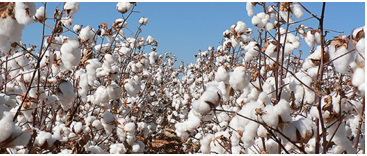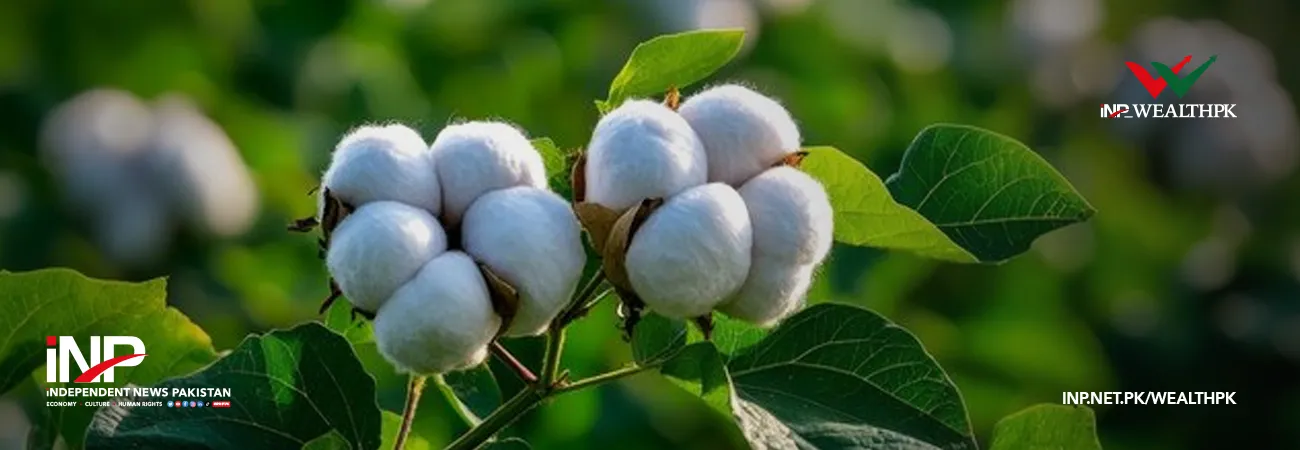i INP-WEALTHPK
Azeem Ahmed Khan
China's significant advancements in research and development (R&D) have positioned it as a global leader in cotton production, serving as a model for countries like Pakistan, says Muhammad Rizwan, an agriculture adviser at Concave AGRI, an agriculture technology company.

“With innovative cotton varieties, advanced pest control methods, and a strategic public-private R&D collaboration, China has transformed its cotton industry, ensuring higher yields and sustainability,” he told WealthPK. “The lessons from China’s success story offer a clear roadmap for Pakistan to revitalise its cotton industry and ensure long-term growth of the sector,” he said.
Rizwan said China’s R&D efforts in cotton cultivation and improvement in yield quality date back to 2010 when challenges like pest infestations and low yields threatened the industry. “The introduction of genetically modified cotton, particularly Bt cotton, helped curb pest-related losses and increased production efficiency,” he added. “China’s investment in cotton R&D has not only boosted its own economy but also created employment opportunities and improved rural livelihoods,” he said.
“The adoption of sustainable practices, such as integrated pest management and efficient water use, has made the industry more resilient,” he said. “Over time, China has integrated digital technologies and precision farming techniques, focusing on soil health and water conservation to further improve cotton yields.”
Rizwan said the Chinese government has played a pivotal role by fostering partnerships between public and private enterprises, encouraging innovation in cotton breeding, and funding research into high-yield, pest-resistant cotton varieties. “The results have been impressive: increased productivity, enhanced fiber quality, and reduced environmental impact.”
The agriculture expert said that cotton is the main cash crop in Pakistan, as 55% of the country’s trade revenue is received from its exports. Yet, it faces numerous challenges in sustaining the cotton sector. “Several critical issues in Pakistan – including outdated seed technology, lack of intellectual property rights, protection for genetically modified seeds, and high production costs – need to be resolved.”
Rizwan pointed out that the absence of a proper Seed Act and copyright laws discourage international seed companies from investing in Pakistan. “Seed theft has led to misuse of Bt cotton, and international firms hesitate to work in Pakistan due to a lack of legal protections.” Additionally, he observed that farmers are shifting to maize and rice due to government subsidies, further threatening cotton production.
“Risks associated with climate change, such as excessive monsoon rains and rising temperatures, have also contributed to a decline in yields, with the country witnessing a considerable drop in production in recent years.” He said Pakistan, with its deep-rooted textile industry, has the potential to regain its competitive edge in global cotton production by following China’s R&D model.
“By prioritising research, policy reforms, and farmer training, the country can achieve higher yields, better-quality cotton, and a more sustainable agricultural sector.” He also recommended updating the Seed Act to protect international seed companies and encourage investment in advanced cotton varieties. He believed that public-private partnerships should be fostered to promote research on pest-resistant and climate-resilient cotton strains.
In addition, Rizwan proposed farmer education and technology transfer, saying, “A systematic method for educating farmers on best practices through knowledge-sharing programmes should be introduced.” The agriculture expert stressed the need for climate adaptation measures, assessing climate risks, and utilising advanced forecasting technologies to protect crops against extreme weather conditions.
Credit: INP-WealthPk









